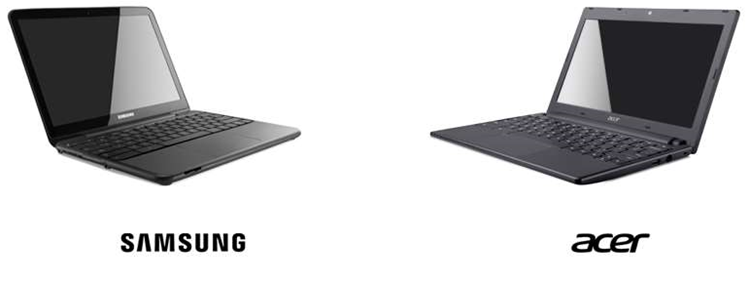Google has announced its first Chromebook, slated for release in Europe and the US by June 15.

The Linux OS Intel-Atom dual-core processor laptops, to be manufactured by Samsung and Acer, will feature a 12.1 inch screen, 3G and Wi-Fi connectivity, automated software updates, and a boot up time of just eight seconds, according to Google, which announced the product at its I/O conference in San Francisco.
Samsung's wi-Fi plus 3G laptop will retail in the US for US$499, while its Wi-Fi only laptop will retail for US$429.00, according to its statement.
The laptops’ security features include automatic updates, sandboxing to thwart drive-by downloads, home file encryption, recovery options and a "verified boot".
“Thanks to automatic updates the software on your Chromebook will get faster over time,” Google's Linus Upson, VP of engineering and Sundar Pichai, senior VP of Chrome said in a joint post.
They claimed its built-in security meant there was “no anti-virus software to buy and maintain” while users should have a “whole day of use on a single change”.
Offline access for Google Docs, Gmail and Google Calender were slated for this (US) summer, according to the All Things Digital blog.
Google teamed up with Citrix for its cloud-dependent laptop, utilising Citrix Receiver. This would allow for users to access, for example, a virtualised version of Adove Photoshop through the Chrome browser.
Google also flagged supported versions for schools and businesses at US$20 and US$28 per month respectively.
It remains to be seen whether Google's Chromebook has improved since its release of the Rc-48 prototype. The screen quality of the device was comparable to most netbooks, its battery life under continuous use was 6 hours, and there were problems with its single-surface touchpad, according to a January 2011 review by Ars Technica.
According to Samsung's fact file, the laptop will last for up to 8.5 hours, depending on its configuration.
Google has not set a release date for Australia.




_(28).jpg&h=140&w=231&c=1&s=0)






 iTnews Executive Retreat - Security Leaders Edition
iTnews Executive Retreat - Security Leaders Edition
 iTnews Benchmark Awards 2026
iTnews Benchmark Awards 2026
 iTnews Cloud Covered Breakfast Summit
iTnews Cloud Covered Breakfast Summit
 The 2026 iAwards
The 2026 iAwards












_(1).jpg&h=140&w=231&c=1&s=0)



